Toyota Announces EV Strategy, Readies $70 Billion for the Cause
On Tuesday, Toyota Motor Corp. announced a commitment of 8 trillion yen ($70 billion USD) toward the goal of achieving carbon neutrality someday. Though the concept of any multinational manufacturing entity totally nullifying their carbon footprint seems kind of laughable, so we’ll be referencing this as another electrification strategy — which is still a big deal considering how EV averse Toyota has been thus far.
Despite being an environmental trendsetter with the Prius Hybrid, Toyota has been hesitant to formally commit itself to transition its lineup toward being reliant on battery power. However, President Akio Toyoda has just proudly confirmed that the Japanese automaker would be earmarking the funds for exactly that purpose, noting that the brand (along with Lexus) would be spending the money through 2030 to make sure its global sales of battery electric vehicles (BEVs) reach 3.5 million vehicles annually. Though the most enjoyable aspect of the release was the direct manner it was presented, with Toyoda-san being impressively honest about modern automotive trends.
Report: The End of 3G Could Leave Your Vehicle With Fewer Features
When people started burning down 5G towers in fear, the practice seemed a little misguided. But if you happen to be the owner of a connected automobile, there’s a chance you’ll be wishing enough of them had been taken down to delay those low-latency spires from becoming the default broadcasting network.
While you were probably aware that 3G cellular networks will be shut down in the U.S. next year so the telecom industry can focus in on 5G, you may not have been hip to the fact that this could totally nullify the connected features inside of your car. Unfortunately, loads of automobiles manufactured the early days of phone pairing and internet integration won’t be able to make the journey into 5G like the new phone or tablet you purchased. Worse yet, there are even some modern vehicles that are about to become a lot less feature rich with companies that have no intention of offering updates.
Driving Dystopia: Stellantis Is Becoming a Software Company Like Everyone Else
On Tuesday, Stellantis announced a plan to cultivate €20 billion ($23 billion USD) per year by 2030 via “software-enabled product offerings and subscriptions.” However, the automaker will first need to increase the number of connected vehicles it has sold from 12 million (today) to 34 million by the specified date.
This is something we’ve seen most major manufacturers explore, with some brands firmly committing themselves to monetizing vehicular connectivity through over-the-air (OTA) updates, data mining, and subscription services. Though much of this looks decidedly unappetizing, often representing a clever way for companies to repeatedly charge customers for equipment that’s already been installed.
Mercedes Introducing Fingerprint Scanning Next Spring
Starting in 2022, Mercedes-Benz will be launching new services allowing customers to use fingerprint scans to verify purchases from inside their vehicle. While this makes it sound as though the feature will be limited to feeding the meter, fast food, gasoline, and the occasional tech-savvy prostitute, parent company Daimler said it was an important step forward for its MBUX multimedia interface and the general trajectory for luxury vehicles as a whole.
Report: Biden Admin May Link Semiconductor Subsidies to Unions
Despite the semiconductor shortage having encouraged the automotive sector to repeatedly idle factories, word on the ground is that things are becoming more stable. Companies are seeing less production downtime overall and workers are reporting more reliable working conditions across the board. However, several automakers have continued to express concerns (e.g. Volvo), alleging that chip shortages could stretch deep into 2022, while the U.S. government ponders how to advance chip production in-country and become less dependent on Asian suppliers.
Commerce Secretary Gina Raimondo has been touring Michigan, meeting with union members and industry heads, and plans to urge Congress to move on a $52 billion in funding bill aimed at boosting domestic production. We’ve questioned the efficacy of the CHIPS Act before, primarily in relation to how the subsidies would be allocated. But there are new concerns that the plan will mimic the Biden administration’s EV subsidies by spending heaps of taxpayer money and giving union-backed organizations a larger cut.
Opinion: 'Nissan Ambition 2030' Was an Hour of Wishful Thinking
Nissan Motor Co. has confirmed plans to invest 2 trillion yen ($17.65 billion USD) over the next five years to accelerate its electric vehicle development program. Like most major manufacturers, the automaker wants to launch a bevy of electrified products over the next decade and derive a relevant portion of its income from EVs.
As explained by CEO Makoto Uchida on Monday as part of the “Nissan Ambition 2030,” the plan is to launch 23 new vehicles with some amount of electrification while it attempts to implement solid-state batteries into three concept vehicles that supposedly foreshadow future lineups. These include the battery-electric “Surf-Out” lifestyle pickup, “Max-Out” sports convertible, “Chill-Out” regular car, and “Hang-Out” adventure crossover. Though all three appear to be little more than drafts of vehicles Nissan would eventually like to build, boasting technologies that we’re not sure are feasible. For example, the Hang-Out is featured with a polygonal purple awning that oozes impossibly out of the vehicle’s roof. It lacks realism, which ended up being a central theme of the Nissan Ambition 2030 presentation that was broadcast on Monday.
Opinion: Governors Begging Congress for Semiconductor Cash Won't Fix Anything
There’s an initiative to convince Congress to pass legislation that would pour billions of dollars onto chip manufacturers at play that’s being led by Michigan Governor Gretchen Whitmer. A letter, signed by nine other governors, was issued asking like-minded lawmakers to send $52 billion in economic aid so that the chip shortage so that the supply issues that have been plaguing various industries (including the automotive sector) can finally be resolved.
Backed by the U.S. Semiconductor Industry Association (SIA), the “CHIPS for America Act” is just one of several programs designed to use the National Defense Authorization Act to create federal funding for chip suppliers. The governors (all of which are from states manufacturing automobiles) say they want a cash injection by the end of 2021 so that domestic chip manufacturing can build new factories right away. But SIA lobbyists are pressing for numerous plans that would result in extensive tax breaks and annual investments from the government that is all focused around the proposed CHIPS legislation and piggybacks on the recently passed U.S. Innovation and Competition Act (USICA).
Alright, let’s break this down.
Right-to-Repair Victory Forces Subaru to Tweak Things in Massachusetts
Subaru of America will be canceling Starlink telematics subscriptions on all new 2022 vehicles sold in Massachusetts thanks to the state having an amended right-to-repair law that’s wildly unpopular with global automakers. If you’ve been following our coverage, Massachusetts has become ground zero for consumer advocacy groups, independent repair shops, and car buyers that have grown concerned with the industry’s increased interest in data hoarding.
The argument is that the automakers are now building vehicles that violate customer privacy — by wirelessly transmitting information back to manufacturer data farms — while also setting them up to make independent repairs nearly impossible. This resulted in an extended legal battle where the Alliance for Automotive Innovation (AAI) went to bat to ensure the industry retained this lucrative venture. But it was stymied by the grassroots campaign launched against it. Massachusetts’ updated law currently requires all vehicles sold within the state (from the 2022 model year onward) using telematics systems to be equipped with a standardized, open-access data platform that would allow customers and unaffiliated mechanics to gain access.
Nuro Raises $600 Million, Valuation Reaches $8.6 Billion
While the concept of mobility has often turned out to be a buzz phrase used by executives unsure of where to place hypothetical revenue streams and burgeoning technologies, it has simultaneously yielded a handful of enterprising business premises with the potential to stand on their own. Nuro, the American robotics company fielding pint-sized delivery drones, is among them and has made a case for itself by eliminating humans from the equation entirely and providing unique scenarios for its services.
The startup has been getting a smattering of positive attention since its formation in 2015 and recently raised $600 million during its latest funding round, bringing its valuation to an impressive $8.6 billion.
Tesla Removes Full Self Driving Beta Over 'Issues'
Tesla Inc. pulled its Full Self Driving (FSD) beta off the table over the weekend, with CEO Elon Musk stating that testers had been “seeing some issues with [version] 10.3.”
To remedy the issue, the company has reverted back to FSD 10.2 temporarily. Musk made the announcement over social media on Sunday morning. The following day, he had already promised that version 10.3.1 would be coming out to address problems encountered during the exceptionally short public testing phase.
“Please note, this is to be expected with beta software,” the CEO noted. “It is impossible to test all hardware configs in all conditions with internal QA, hence public beta.”
Toyota, Stellantis Announce North American Battery Plants
Automakers Toyota and Stellantis separately announced plans to construct lithium-ion battery plants in North America on Monday. With regulatory pressures mounting, the industry has been shifting its eggs between baskets to avoid trouble. But the ultimate goal for most brands is to transition toward selling EVs, requiring meaningful action and financial expenditures on the part of manufacturers.
We’ve already seen General Motors and Ford Motor Co. squabbling over who will nestle the biggest battery facilities between America’s Frost and Sun Belts. It’s only fitting that the remnants of the Chrysler Corporation contained in Stellantis walk the path of electrification, especially now that it’s absolutely riddled with European influence. Meanwhile, Toyota is predictably exercising a bit of caution as it similarly navigates how to modernize itself via upcoming lithium-ion plants.
Dual Realities: VW CEO Claims Slow EV Shift Could Cost 30,000 Jobs
Like the rest of the world, the automotive industry is currently living in two distinct realities. Labor unions and part suppliers have been sounding the alarm that electric vehicles will require far fewer hands to manufacture and will ultimately lead to their demise. But battery firms, establishment politicians, and most automakers have claimed that transitioning to EVs is entirely necessary and will result in there being a surge of high-paying jobs to replace those lost.
Then there are claims you can’t quite wrap your head around, like the one Volkswagen CEO Herbert Diess reportedly made to the supervisory board in September. The Diess Man asserted that VW would lose 30,000 jobs if it transitioned too slowly to electrics, framing the situation around Tesla arriving in Germany and fresh competition from Chinese manufacturers. While it’s certainly possible that VW could take a hit as its rivals move on Europe, the premise that it’s going to cost the business jobs is sort of bewildering when just about every analyst agrees that electrification will result in a leaner workforce across the board.
Report: Apple Wants IPhone to Have More Control Over Cars
Most of us have synced our phones to a vehicle to play music, unwittingly funneling personal information to the manufacturer in the process. But only an elite few have used their mobile device to digitally summon an automobile out of a garage or remotely tell it to pre-condition interior temperatures to the desired specification. However, that’s likely going to be the future and Apple would very much like to be leading the charge.
The tech giant is reportedly developing a way to better integrate smartphones with cars by accessing systems that are currently unavailable to CarPlay. Apple’s new program, internally known as IronHeart, seeks to collaborate with automakers so that its phones can network with vehicles in new and interesting ways. It’s effectively CarPlay 2.0 and sounds as though it would be giving the company access to just about every item drivers might interface with on a daily basis.
Opinion: Tesla's Full-Self Driving Beta Is a Bad Joke
Earlier this week, Elon Musk announced that Tesla would begin offering the Full Self-Driving (FSD) Beta to testers that had achieved sufficiently high marks in its new “safety score.” While company has repeatedly promised to launch FSD in earnest, which costs $10,000 to purchase or $199 a month to rent (depending on which version of Autopilot you’re using), the system has been habitually delayed from getting a widespread release. This has upset more than a few customers operating under the assumption that having bought into the service actually meant something.
That said, the rollout has technically begun and continues encompassing more users. But regulators are annoyed that the company is now testing FSD’s functionality on thousands of paying customers and the terms in which Tesla is offering FSD has changed in a manner that makes your author extremely uncomfortable. The automaker originally intended to provide the system via a simple over-the-air (OTA) update as availability expanded. However Tesla now has a button allowing drivers to request FSD by opening them up to a period of scrutiny where their driving is digitally judged. Despite your having already shelled out cash for it, access to the beta is determined by the manufacturer’s safety score.
Captain Obvious Returns: Studies Say Ride-Hailing Apps Cause Pollution
As luck would have it, hiring thousands of drivers to cruise around a city in search of their next fare has some negative environmental impacts. That’s the word coming from expert researchers at Carnegie Mellon University, who we can only hope are prepared to tackle similarly impossible quandaries — like establishing what happens to an object when it’s dropped or reaching a final determination on the wetness of water.
The study is inextricably linked to one we covered in 2018 asserting that ride-hailing services actually created more traffic congestion because it treads extremely familiar ground and seems like something that we should have already figured out on our own. But it’s also at odds with the years of messaging we’ve gotten from technology firms that have promised on-demand services (like Uber or Lyft) would usher in a new era of urban transportation striving for clearer roads and cleaner air. Based on little more than the conjecture of executives, we’ve generally accepted ride-hailing as “greener” than the alternatives and it’s well past time that we started actually thinking about it.
Daimler Getting Back Into Bed With Chrysler for Battery Biz
Daimler is getting cozy with Chrysler again, or at least the American side of Stellantis, so they can tackle battery development and production. Those in the know will recall that Chrysler has been passed around more than a bottle of booze at a middle school party. But its long history of partnerships also kept it in business and resulted in some of its better products.
Before the Amero-French merger that resulted in Stellantis, Fiat Chrysler Automobiles was an Italian-American company with facilities dotted around North America. Prior to that, it was known as DaimlerChrysler – resulting in the LX Platform, Pentastar V6, and a wider variety of Jeep Wranglers. Now, Chrysler’s alienated German wife has shown up on the doorstep with a wad of cash and news that she’ll be investing it into the new battery business.
German Startup Driving Around Autonomous Vehicle Hurdles
Despite the concept of autonomous cars suggesting a seamless, hands-free driving experience as far back as the late 1950s, only the peripheral technologies have made their way into the real world. Our ancestors would have marveled at the video displays, powertrains, and navigation systems available today. But the 21st century concept of “mobility” has also turned out to be a bit of a scam.
Formerly a catch-all term for autonomous transportation, the phrase has been redefined by the industry to pertain to subscription fees, over-the-air updates, digitally affixing your credit card information to the vehicle, and just about any present-day feature it’s interested in selling. Meanwhile, the self-driving programs that kicked off the would-be renaissance have been stagnating as companies cannot quite figure out how to teach a car to successfully assume all of the duties of a human driver. However there’s a German startup that’s attempting to circumvent those obstacles by employing digital chauffeurs working from far-off locations.
Audi Skysphere Concept Previews Transforming Automobiles
It often feels like the automotive industry has hit a creative wall where every concept vehicle has to be another electric vehicle offering next-generation connectivity and some self-driving claims that will later be tamped down. We’ve gotten used to being disappointed but there has been one brand that’s been furnishing concept vehicles that are at least interesting.
In 2018, Audi debuted the PB18 E-Tron Concept (AI:RACE) in an attempt to highlight what’s possible with a pure EV using the skateboard platform. Without a driveshaft hogging interior space, the automaker felt it could build a supercar with an interchangeable driving position that allowed the pilot to transition from a central F1-style cockpit to something that’s more suited to the daily commute. The company has since decided to build on that idea with the Skysphere Concept, which alters the roadster’s exterior based on whether it’s you or the car that’s doing the driving.
Junkyard Find: 2002 Chevrolet Venture Warner Brothers Edition
Back in the days before smartphones and cheap tablet computers, parents planning to take some screaming ankle-biters on a long road trip needed some means of hypnotizing the little darlings into submission, something that didn’t involve extreme measures such as tranquilizer dart guns or child literacy. Minivan makers began installing airliner-style flip-down video displays in the 1990s, enabling The Slime to ooze out of tiny flat screens on the road. The General took this idea one step further, partnering with Warner Brothers to issue a special-edition Chevy Venture packed with Looney Tunes goodies and branding. I spent years trying to find one of these rare vans in the U-Wrench-It yards I frequent, and I hit pay dirt last month in Denver.
Tesla 'Recalling' 285,000 Vehicles in China Over Autopilot Issue
The Chinese Communist Party seems to have it out for Tesla. Following bans that prohibited the brand’s vehicles from parking themselves anywhere near a military base, China’s government has decided to recall over 285,000 Tesla automobiles sold in the country. We’ve also seen state-run media outlets begin branding the automaker as irresponsible and arrogant amid consumer protests some are concerned might have been staged for political reasons. Though it’s painfully hard to get inside the head of the CCP while you hope for concrete evidence of any of the above. Propagandizing and censorship have reached a level where just about everyone is having difficulties distinguishing up from down.
What is certain, however, is that Tesla’s regional volume has taken a noteworthy hit in 2021 despite sales more than doubling the previous year. While this may have nothing to do with the bad publicity and recall campaigns, we’re betting the latest example — which pertains to customers misusing Autopilot — won’t help matters.
Tesla Sued Over Supercharging Fees, Broken Promises
Tesla is being sued in California by an owner that’s claiming the automaker broke its promise of a lifetime of free charging after it started imposing fees upon people who allowed their cars to sit at stations for too long. For those of you that don’t recall, Tesla began rolling out its Supercharger network in 2012 and promised unlimited free charging as a way to entice early adopters. While it doesn’t pertain to all vehicles and has existed in various incarnations, gratis electricity was available on most properly equipped Model S and Model X purchased by 2016. But the deal has existed in various incarnations through 2020 and has been confusing customers almost as much as the apparently bogus self-driving suite.
As the brand became more popular, you’d start seeing Tesla owners populating Supercharging stations in greater numbers and chattering about their interests. Unfortunately, those extended diatribes on the merits of TEDx and spending a fortune on minimalist interior home design resulted in stations being occupied but going unused. To discourage this Tesla began imposing fines in 2016, noting that it hoped never to make money on the updated arrangement.
Mercedes-Benz Accidentally Shares Consumer Data
Mercedes-Benz inadvertently leaked the private data of some of its customers. The good news is that the number of affected people was alleged to have capped somewhere around one thousand at the time of this writing. But the bad news is that this wasn’t like having your e-mail or phone number getting out there. Contents reportedly included customers’ social security numbers, self-reported credit scores, driver licenses, addresses, and credit card information.
While the odds of you personally being affected remain low, the circumstances in which this took place are becoming increasingly common. Customers and interested buyers entering personal data into company and dealer websites between 2014 and 2017 had their data stored via a cloud storage platform. But it wasn’t as secure as it should be and Mercedes is now blaming the vendor for the security breach and subsequent embarrassment.
Driving Dystopia: German Automakers Keep Reimagining Vehicle 'Ownership'
Volkswagen recently announced that it plans on making massive amounts of money by introducing more vehicles with over-the-air updates (OTAs), many of which will be able to store and transfer personal profiles so that users can effectively just rent their vehicles for eternity. Additionally, VW has suggested future models will have ability to lock features (that have already been physically installed) behind a paywall that users can unlock via subscription services — things like heated seats, satellite navigation, or even the vehicles top speed.
“In the future, our customers will buy, lease, share or rent cars just for a weekend, and we can use software to provide them with whatever they need over the air,” VW brand’s sales chief Klaus Zellmer said during an online presentation held on Tuesday. “The ID family has been designed for further development, with OTA updates to improve the software’s performance and tailor it to our customers’ needs.”
Chip Shortage: GM to Remove Stop-Start Tech From Trucks
Despite hearing murmurings that the semiconductor shortage is about to turn a corner, General Motors has recently decided to begin manufacturing full-size pickups without the sometimes obnoxious automatic stop-start feature (intended to improve fuel economy) as a way to cut back on chip usage.
While this saves many the trouble of having to manually deactivate the system each time they return to the vehicle, some will undoubtedly miss having it. Those traversing the countryside or racking up highway miles during their daily commute have little to gain from the feature. But testing has revealed that city dwellers constantly exposed to stop-and-go traffic actually have an excellent shot at lowering their fuel bill. The vehicles GM has selected can do without start-stop technologies reflects this, though the compensation it’s offering remains laughable.
BMW Patents Projection Side Mirror Display, Cool But Pointless
The problem with being in the sales business is the need to constantly outdo your rivals. Automakers know this better than just about anyone, which is why you see gimmicky features installed into vehicles that probably would have been just as good without them. But one never knows what’s going to catch on with consumers and you’ll never catch the big one if you don’t go fishing, so you’ll see patents filed on just about everything.
BMW has reportedly done just that with its new virtual mirror technology system that merges camera-based mirrors with olde-tyme projection technologies. The purpose appears to be something that replicates the experience of traditional side mirrors (which work fine) while adding some modern features that can only be accomplished using the newer stuff.
GM's Cruise Asks White House to Dissolve AV Testing Restrictions
General Motors has a long and illustrious history of receiving government favors, with 2021 likely to continue the trend. Having recently seen its request to have federal EV tax credits reset approved by the Senate Finance Committee, GM-owned Cruise is now seeking to double down by asking regulators to scale back restrictions on autonomous vehicle testing. With practically every automaker simultaneously requesting government hookups on a weekly basis, it’s hardly surprising to see this.
What is unique is the rationales given for government help and it’s often the only way to measure their merit. While most claims tend to boil down to “ we need more money,” Cruise wants regulators to get out of the way so the United States can become more competitive against China’s AV programs and is hardly the first company to make such a suggestion.
2022 BMW 2 Series Coupes Coming Soon
The 2022 BMW 2 Series coupes are on their way. Dynamic testing, drivetrain, and suspension tuning on the two-door compact are nearing conclusion. Production begins in the late summer of 2021.
Driving Dystopia: Tesla Activates Driver Monitoring Protocols
There’s a small camera just above the rear-view mirrors installed in newer Tesla models. If you haven’t noticed it before, it wasn’t of any particular relevance. But it certainly is now.
Tesla has decided to activate driver monitoring protocols in an effort to avoid liabilities whenever Autopilot fails and motorists unexpectedly find themselves merging off a bridge. After rummaging through the wreckage and collecting errant body parts, investigators can use the vehicle’s camera data to see what was happening moments before the car hurled itself into the ravine. If it turns out that the driver was totally alert and did their utmost to wrangle the vehicle as it went haywire, a colossal payout for the surviving family is assured. But if that camera catches them slipping for a microsecond, the manufacturer has all it needs to shift the blame onto the deceased driver.
Stuck in Reverse? Tesla Abandons Radar, Restricts Features
Tesla is abandoning radar on its more affordable vehicles so it can deploy something that sounds like a vintage color motion picture process where the hues really manage to jump off the screen.
“ Tesla Vision” is the current process the company will use to collect and interpret the information necessary to operate semi-automated systems on the Model 3 and Model Y. But it feels like a step backward, if we’re being honest, and will result in cars that have “temporarily limited” abilities.
Tesla Confesses to California DMV Self-Driving Tech is Overhyped
Back in January, Tesla CEO Elon Musk said he remained confident that his company would be able to deliver a self-driving vehicle exceeding the capabilities of an average human pilot by the end of 2021. But this has become a tired excuse used almost reflexively by automakers for years, making the inevitable shifting of the goalpost so predictable that nobody even bothers to get upset anymore. Being lied to is just part of everyday living and the automotive sector is just one droplet in the overflowing bathtub of mendacity.
Unfortunately, organizations continue making the mistake of expecting to be given the benefit of the doubt as they continue repeating the same fables. We know they’re working on solid-state batteries and autonomous cars, but they’re hitched to these unrealistic expectations and completely fabricated timelines that draw our focus while they engage in slimier practices on the sly. While holding them accountable is often easier said than done, catching them in a lie is usually fairly simple. For example, the California Department of Motor Vehicles accidentally called out Tesla on the full self-driving (FSD) beta it’s been testing with employees.
Report: The Government Is Already Using Connected Cars to Spy on You
A recent report from The Intercept has confirmed some of our biggest fears about connected vehicles. Apparently, U.S. Customs And Border Protection (CBP) has struck a deal with Swedish mobile forensics and data extraction firm MSAB for hardware that allows the government to not only siphon up vehicle data but also use it as a backdoor to access the information on your phone.
While this shouldn’t be all that surprising in an America that’s seen the Patriot Act pave the way for all sorts of government spying, the arrangement represents another item in a toolbox that’s frequently used against regular citizens. CBP is alleged to have spent $456,073 on a series of vehicle forensic kits manufactured inside the United States by Berla. Internal documents suggest that the system was unique and of great interest to the U.S. government, with a multitude of potential applications pertaining to automotive data. But what surprised us was just how much information carmakers thought their products needed to keep tabs on and how that plays into this.
Torsus Praetorian 4X4 Off-Road Bus Updated
Torsus’ Praetorian, heavy-duty, off-road 4X4 buses, has announced a number of technical advances. These rugged off-road buses are made to cross some of the most inhospitable terrains on earth.
Analog Revenge: Chip Shortage Forcing Automakers to Ditch Tech
After months of seeing factories idled, it seems that the global semiconductor shortage has encouraged the automotive sector to rethink some production strategies. Numerous brands have opted to strip vehicles of specific features to help offset the ever-worsening chip problem, occasionally supplanting them with older hardware.
Well, well, well. It looks like the push into electromobility hasn’t gone quite as planned and the industry has come crawling back to analog in some cases. Though it would be premature to break out the campaign and declare the old ways superior for all time. The resurgence of analog hardware is likely to be short-lived, ending the second the semiconductor shortage lets up. As much as your author wants to believe the industry will learn a lesson about not putting all your eggs in one basket, it didn’t seem to in the last century and is unlikely to come around during this one.
Auto Lobby Now Recommends Driver Monitoring Cameras
On Tuesday, the largest automotive lobbying group released a handful of safety guidelines related to driver monitoring for vehicles equipped with driver-assistance features. It’s pageantry designed to convince you and the rest of the world to embrace technologies that have already led to unsettling privacy violations. The Alliance for Automotive Innovation making recommendations for the industry is farcical because the AAI already represents just about every major player on the field, suppliers included. The only real outsider is Tesla, which the organization decided would make an excellent scapegoat for the broader tech agenda.
But there’s still merit to the discussion, especially if the only proposed solution is to let the industry watch us inside our cars 24/7.
2021 BMW M3 and M4 Competition XDrives Arrive Soon
BMW’s 2021 M3 and M4 Competition cars, both endowed with xDrive all-wheel-drive, will arrive in August. Four hundred and seventy-nine lb-ft of torque is on tap.
Ford Introduces 'Hands-Free' BlueCruise System for F-150, Mach-E
On Wednesday, Ford Motor Co. announced its upcoming hands-free driver-assist system intended to rival Tesla’s Autopilot or General Motors SuperCruise. The service, which the manufacturer has renamed BlueCruise, will be available on top trimmed “Mustang” Mach-E crossovers and F-150 pickup trucks via over-the-air-updates in the third quarter of 2021.
It will not be free, however.
Even though Ford has promised highly competitive pricing, customers will need to have purchased vehicles equipped with the necessary hardware (including driver monitoring cameras) before they’ll be eligible to spend the additional $600 Ford is asking for the privilege of using BlueCruise for three years. While more affordable than the competition, it still seems a lot to spend on a vehicle so you can pretend it’s self-driving – especially since the company failed to make it sound like it would be any more advanced than what’s being offered on Tesla and Cadillac vehicles that similarly cannot drive themselves.
Hyundai Pony Heritage Becomes Design Studio Centerpiece
While automotive enthusiasts have mixed opinions on the cultural clout of electric vehicles, there’s one aspect of electrification that’s undeniably cool — the resto-mod potential. Despite the historic appeal of driving around in vintage automobiles, they’re often painfully slow with ridiculously long braking distances and a lack of standard features many people living today would deem unacceptable. If you don’t believe me, select a random friend and ask them to parallel park a car without power steering or automatic transmission. Chuck in maintenance costs that are often well above average and it’s little wonder why so many Baby Boomers have been spending their retirement years outfitting the classic-era (or older) cars they grew up with with modern conveniences and components.
But we’ve also started seeing manufacturers (and even some intrepid entrepreneurs) taking the foundational concepts of resto-modding and adding electric propulsion. Some executions even seem to be pushing the boundaries of what we could effectively call automotive restoration, like Hyundai’s Pony Heritage EV.
Supreme Court Allows Auto Aftermarket to Access APIs
The Supreme Court ruled on April 5th in the Google v. Oracle case, a copyright dispute over software. Their decision was that application program interfaces (API) are fair use in building compatible components.
Watt EV Coupe – Will It Make It to Production or Not?
The Watt Electric Vehicle Company (WEVC) has unveiled the EV Coupe, a classic shape inspired by the 1955 Porsche 356A. WEVC is not connected with Porsche AG. WEVC does not imply that any of their products are a product of Porsche AG, nor are the Porsche or 356 names used or associated with WEVC products. So why would we think WEVC is on a slippery slope?
Hyundai Blue Link Connects Owners and Insurance
Hyundai Blue Link, a connected-car service first offered in 2018, can now be used to save on auto insurance. Hyundai’s usage-based insurance (UBI) program and Driving Score promotes safe, efficient driving habits. Through Verisk, a global data analytic firm, Hyundai drivers can opt-in to share their driving quirks. Receiving substantially lower insurance rates is the hope of most drivers.
Not Everyone in Arizona Is a Fan of Waymo's Self-Driving Vans
Waymo, the autonomous program backed by Google-parent Alphabet, seems to have upset some residents of Phoenix, Arizona, who have elected to whip eggs at the company’s test vehicles. Selected due to its lax regulatory standards, the state has become home base for Waymo to pioneer its self-driving vans since 2016. However, newly released police reports paint a picture where the locals are far less enthused with the vehicles’ progress than Waymo’s marketing materials would suggest.
A subset of Phoenix citizens has been demanding the firm improve transparency and offer better explanations for some of the higher-profile crashes since 2018. Despite Waymo assuring the public that mishaps are rare, local reports showed some erratic behavior among the test mules operating in 2020. While a few of these incidents made the news, local police reports from Chandler and Tempe (metropolitan Phoenix) indicate there was a slew of incidents we did not know about — many of which involved encounters with frustrated, human motorists.
2022 BMW Alpina B8 Gran Coupe a Late Spring Arrival
Alpina is to BMW enthusiasts much like AMG is to Mercedes devotees, both eliciting great excitement and emotion. The former has announced the arrival of the 2022 BMW Alpina B8 Gran Coupe in late spring.
Holley Restomods the '72-'93 Dodge D100 Pickups
Holley is about to do for ’72-’93 Dodge D-100 pickups what it did for ’67-’72 GM C-10 trucks, which is to raise their performance profile exponentially and make those old Dodge trucks highly sought after.
Great Wall Motor's Haval H6 Hybrid – Another Brick in the Wall?
Great Wall Motor (GWM) premiered the new Haval H6 Hybrid SUV at the 42nd Bangkok International Motor Show this week, a reaffirmation of the company’s xEV commitment to Asian if not world domination.
2022 Bentley Continental GT Speed – Loaded Like a Freight Train
The Bentley Continental GT Speed is 650 HP and 664 ft.-lb. of torque, with an eight-speed, dual-clutch transmission, and all-wheel drive. It’ll do 0-60 in 3.5-seconds, with a top speed of 208 MPH, the third generation of Speed models, details of which were released today.
Oil 2021 Outlook – Oversupply and Lower Demand
Oil 2021, an analysis by the International Energy Agency (IEA), explains why the pandemic caused the collapse in demand for oil in 2020, and why it may never return to ‘normal’.
2021 Hyundai EVs Get Fast Charging Free
Hyundai’s 2021 Kona Electric and Ioniq Electric now include 250 kWh of complimentary fast charging through Electrify America, with more than 2,400 ultra-fast chargers across the U.S. According to Electrify America, 96 percent of the population lives within a 120-mile radius of one of their chargers.
Ginetta Sports Cars Coming to America
Ginetta, a British race car manufacturer for more than 60 years, has opened Ginetta North America in South Boston, Virginia, to provide support for their motorsports customers across North America.
From their U.S. base, Ginetta will be able to not only market, distribute, and sell their sports cars, but grow their presence and the brand. Part of the expansion into North America included the acquisition of TMI AutoTech, a leader in low-volume sports car manufacturing in the U.S.
BMW IDriving Machines Tout Connectivity
BMW has announced that the upcoming iX and i4 electric vehicles will be equipped with iDrive 8, their latest interactive buddy to keep you busy while you motor about.
8th Gen Mercedes-AMG SL Unveiled
Mercedes-AMG wanted to show you its new SL Roadster, a 2+2 seater, testing its 4Matic+ all-wheel-drive system at a private proving ground in Sweden near the Arctic Circle. In typical Mercedes fashion, they said it was as much a test of the Roadster’s convertible top as it was the all-wheel-drive system under these harsh conditions.
2021 Maybach S 580 Tips the Scales at $184,900
Yesterday, Maybach heralded the arrival of the S 580, with the type of announcement you’d expect if you started at $184,900, or roughly 69 percent of the $269,039 median home price nationwide, according to Zillow.com.
2022 400Z HP Revealed?
According to Project Cars 3, a video game from Slightly Mad Studios distributed by Bandai Namco, the new Nissan 400Z is shown in their latest downloadable content (DLC) power pack to possess some very serious horsepower.
2022 Hyundai Tucson Priced to Fit
Pricing for the all-new 2022 Tucson SUV was announced by Hyundai Motor America today, with 15 variations available to suit a wide range of needs and budgets. Starting at $24,950 MSRP for a base SE model with a 2.5-liter 4-cylinder, 8-speed automatic transmission, and front-wheel drive, the range tops out at $37,350 for a Limited HEV, which is a 1.6-liter turbocharged 4-cylinder hybrid with a 6-speed automatic transmission and HTRAC all-wheel drive.
Honda SENSES Hands-Off Driving in Japan
Honda has begun leasing Legend EX sedans with the Honda SENSING Elite safety system in Japan today. The first Level 3 automated technology to be approved in that country, the system includes Traffic Jam Pilot, Hands-Off, and Emergency Stop Assist functions.
What part of autonomous driving is this, being unveiled under the guise of advancing safety and an overarching theme of creating a collision-free society? Honda says Elite is the next generation of Honda SENSING, safety, and driver-assistive tech already available on Hondas worldwide.
Welcome to Electric Avenue — More Chargers on the Way
The Electric Highway Coalition, a consortium of six utility companies, will provide a network of 20-30 minute DC fast chargers for EV drivers, as reported by Electrek. Each of the utilities will be responsible for providing EV charging within their service areas, with most sites located along major highways for easy access and adjacency to other amenities.
2021 Honda CB1000R Black Edition – Ride It Like You Stole It
Consider the Honda CB1000R, everything you need and nothing you don’t. Beyond the naked bike school of thought, the CB1000R is unbridled joy, without the race replica look of a sport bike, nor the flash of a cruiser.
Hyundai Releases Bayon Euro Crossover
Don’t get too excited. Hyundai’s Bayon is at present a European-only crossover SUV that the brand announced today. All-new in the B-segment, Bayon is named after Bayonne, a sought-after vacation destination in the south of France.
The growing popularity of SUVs in Europe was the reason for Hyundai’s introduction, and the forward-motion stance of the Bayon is in keeping with the design characteristics of the segment. Bayon is the seventh new or enhanced model Hyundai has released in the past year.
Pennzoil Embraces Carbon Neutrality
Pennzoil has announced it will offer carbon neutral passenger car lubricants in North America, starting with their Platinum line of full synthetic motor oils. This is a quantum leap forward for parent corporation Shell to be a net-zero emissions energy business by 2050 or sooner.
New Sundancer Boat a BMW Designworks and Sea Ray Collaboration
Designworks, BMW’s California design studio, has announced their first collaboration with Sea Ray, the storied boat builder, on their new Sundancer 370 Outboard. Released to coincide with the 45th anniversary of the Sundancer series, it’s a swoopy-looking departure for the iconic maritime manufacturer.
White House Presses Taiwan On Semiconductor Shortage
Automakers around the globe have been issuing warnings for weeks that the semiconductor shortage will eventually result in fewer cars and leaner profitability reports. But the absent chips are affecting just about every industry producing modern connected devices, creating fears that electronic prices could skyrocket as availability dwindles. Lockdowns effectively crippled semiconductor supply lines right as demand peaked and everyone is starting to get a little worried about how it’s going to impact production in other industries.
The White House is reportedly taking steps to mitigate the issue by tasking Brian Deese (Director of the National Economic Council) and Jake Sullivan (National Security Adviser) with coming up with a solution. It’s also asking embassies to assist chip suppliers around the world however possible and hopefully suss out a way to stop the global shortage. Meanwhile, Deese and Sullivan will be focusing the brunt of their efforts on Taiwan.



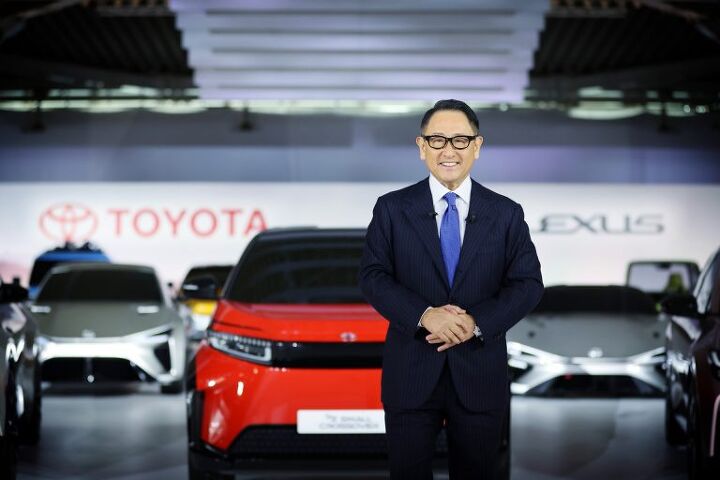

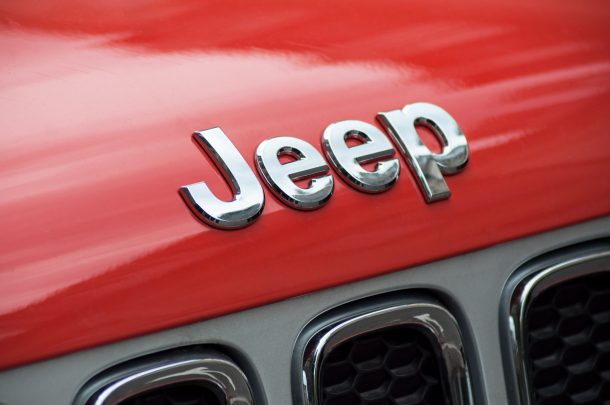
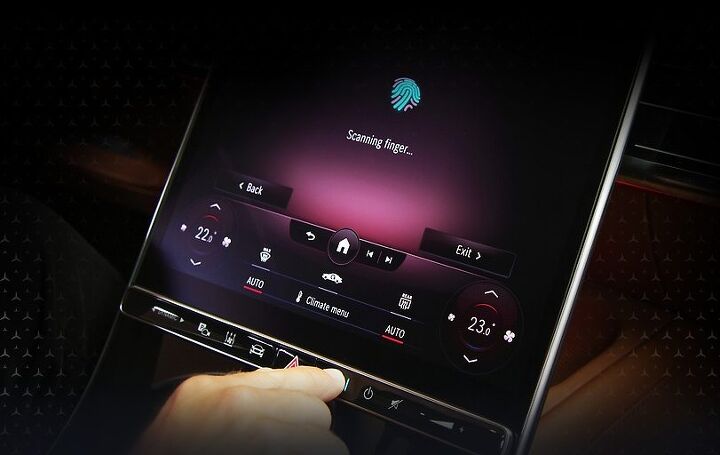
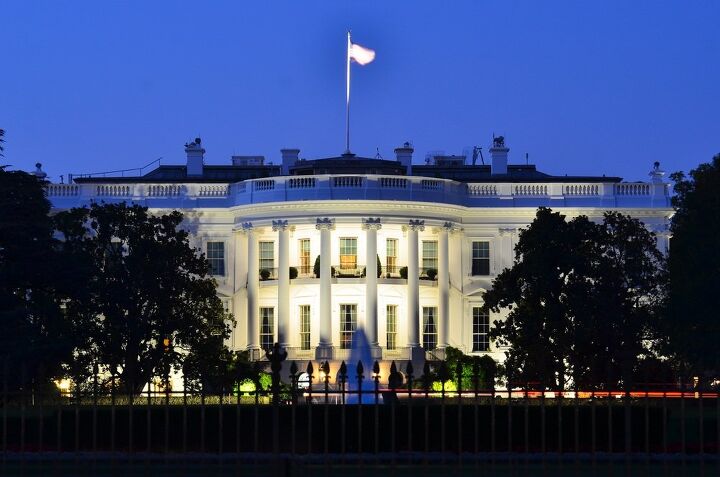
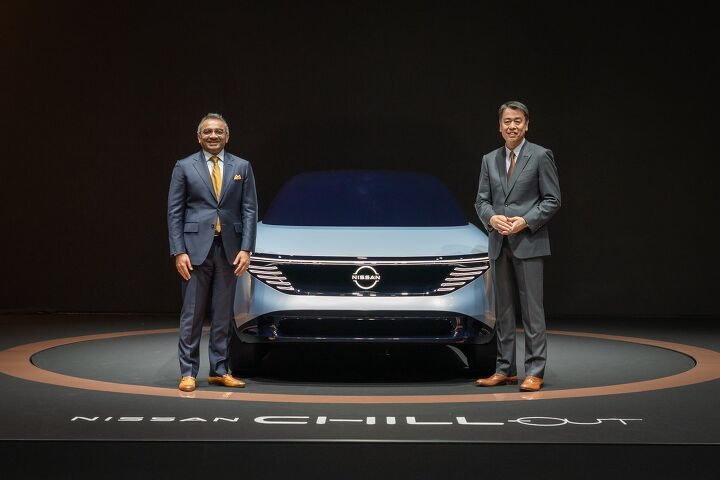
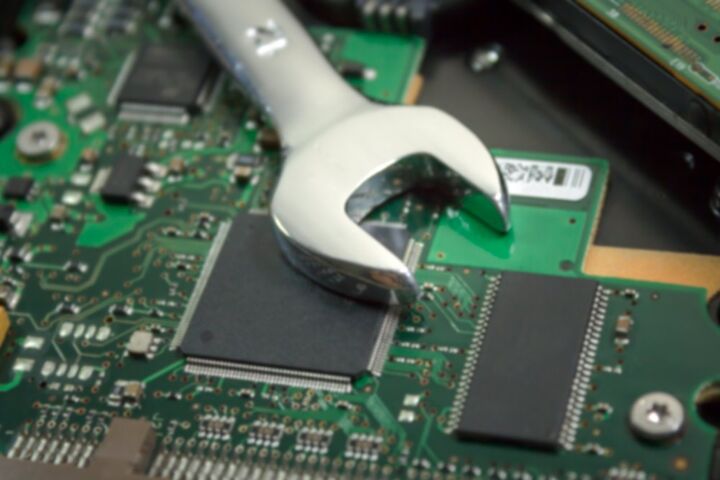
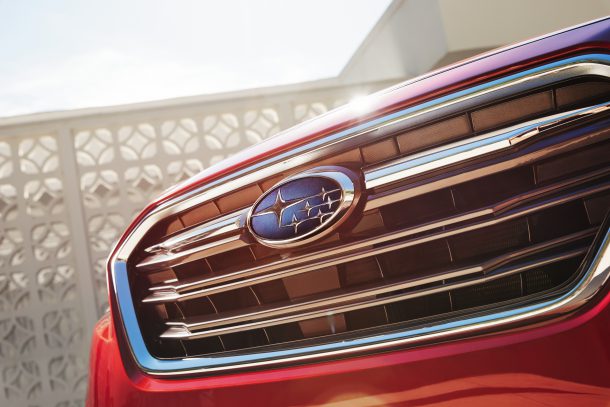
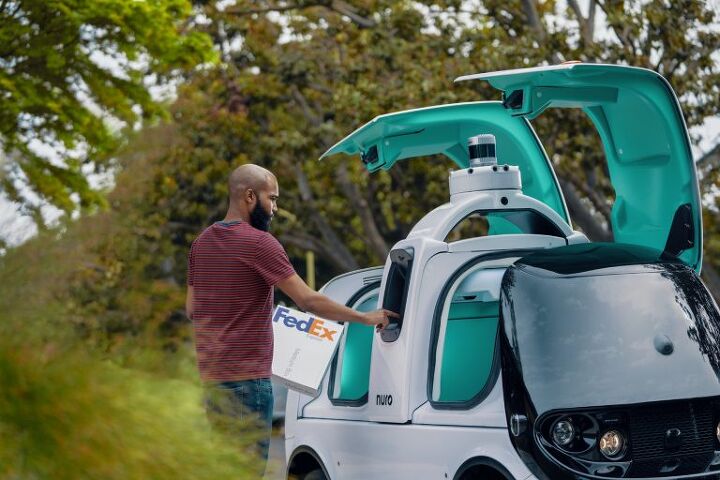

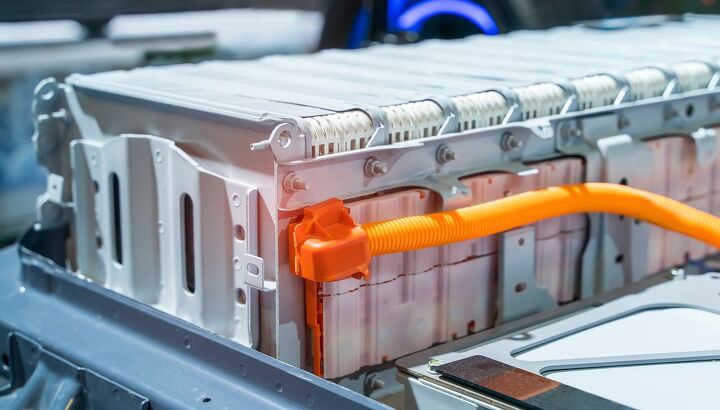


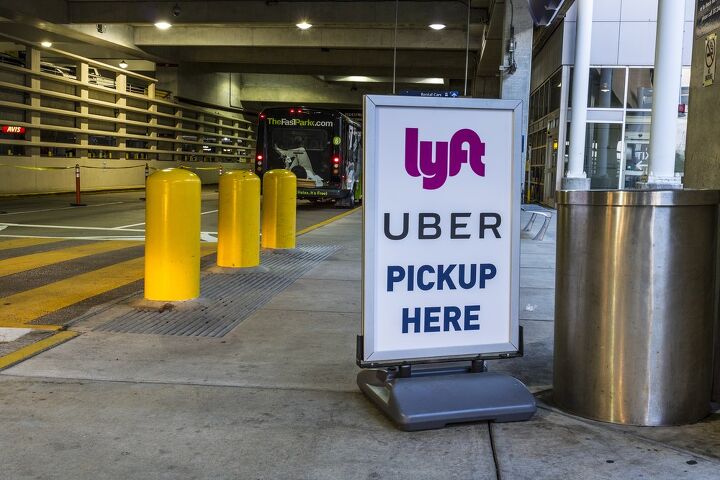

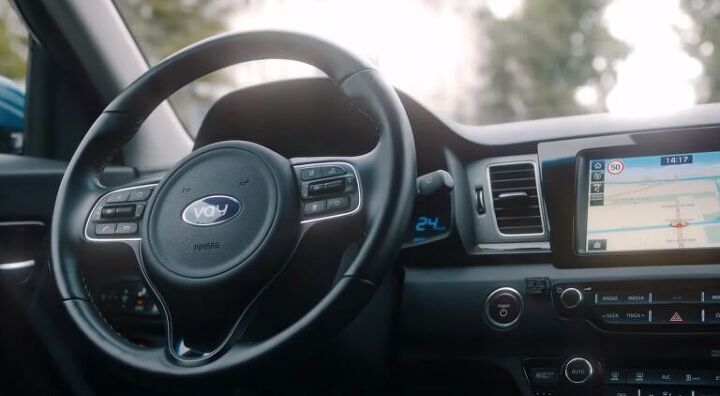
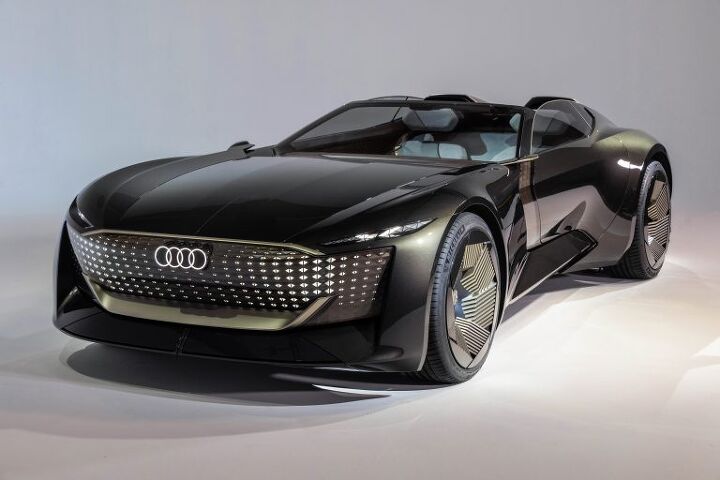
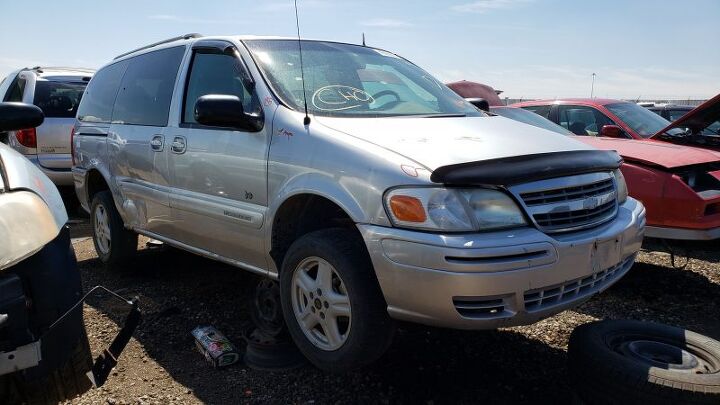


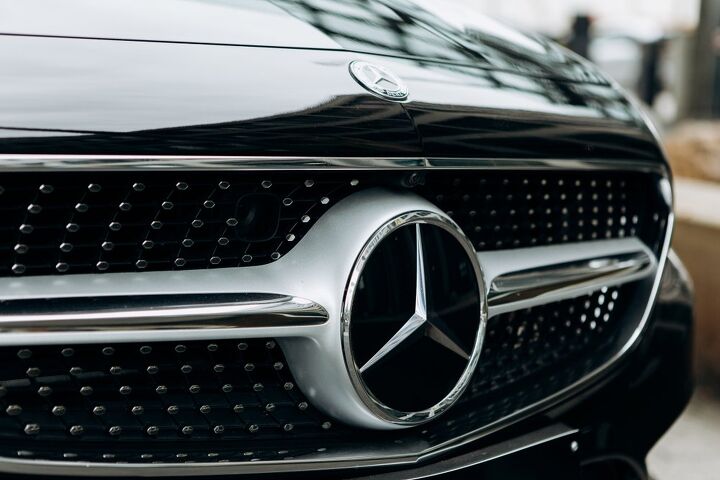
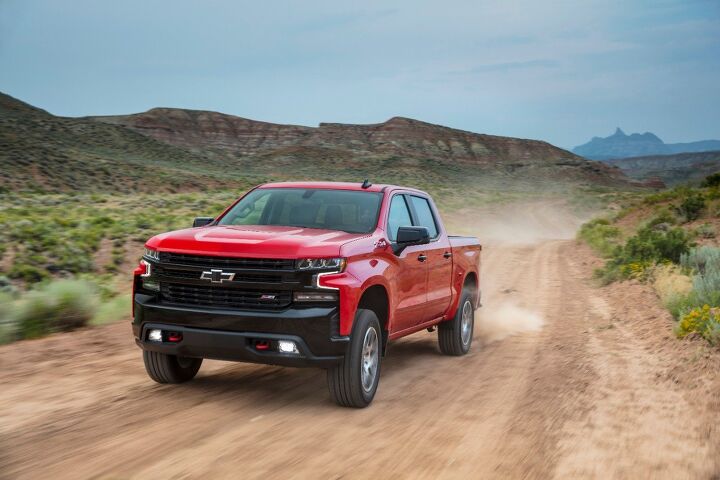
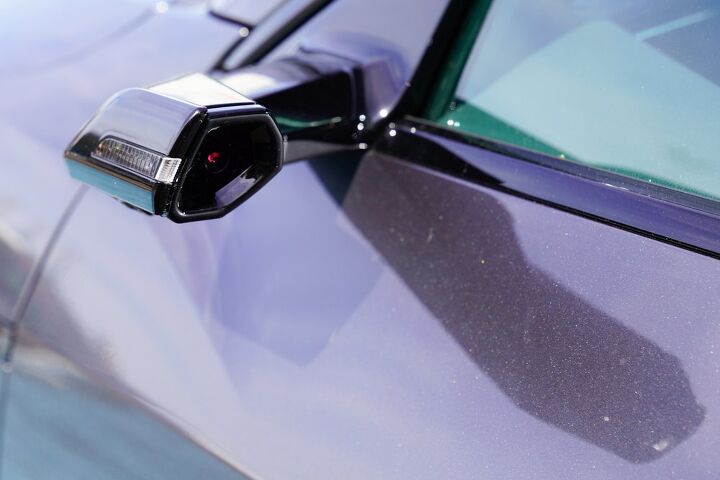

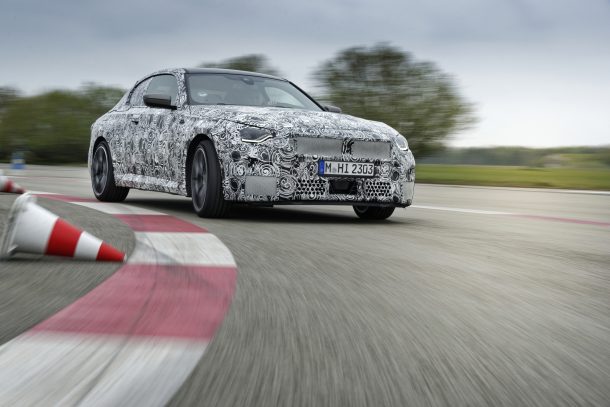
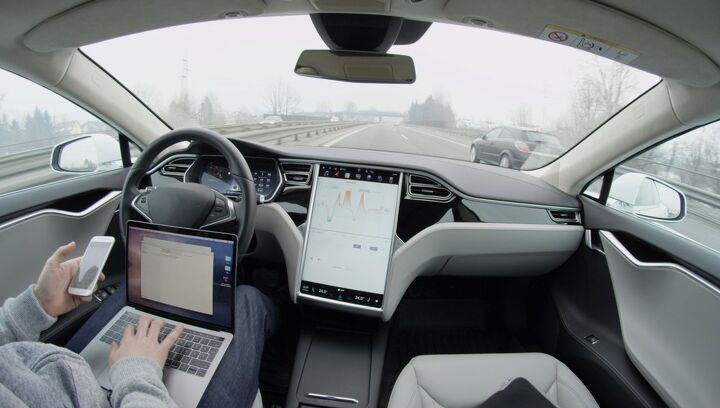



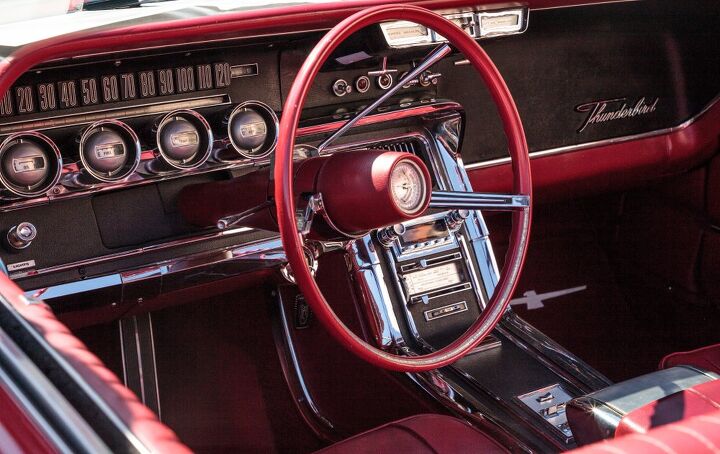
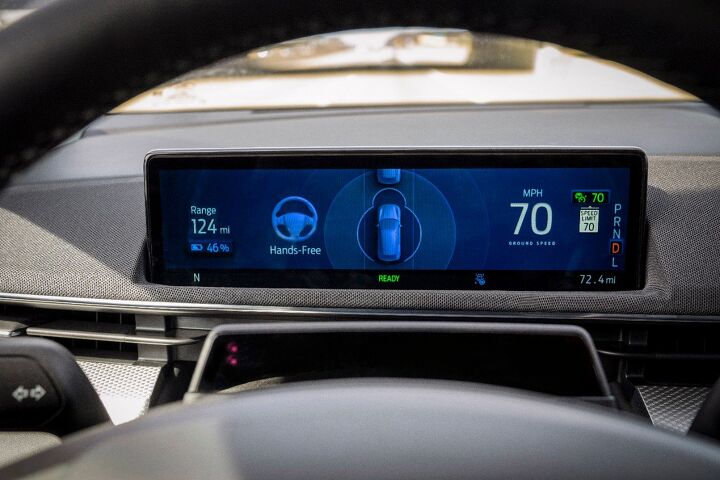
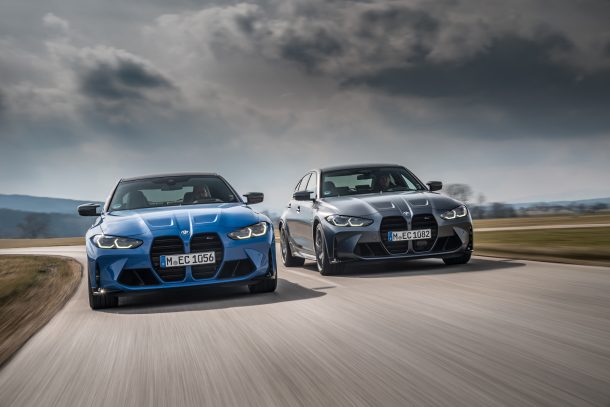
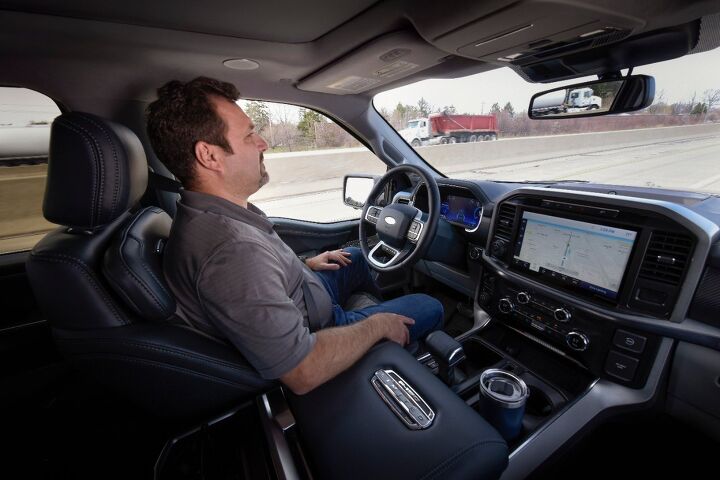
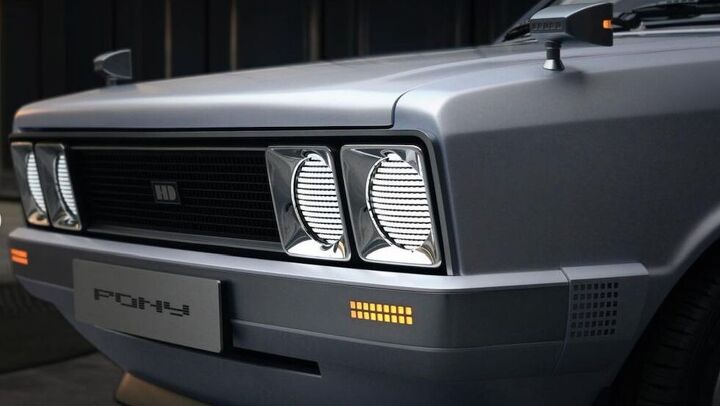


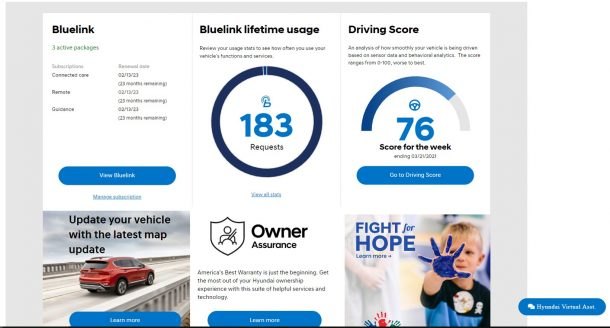
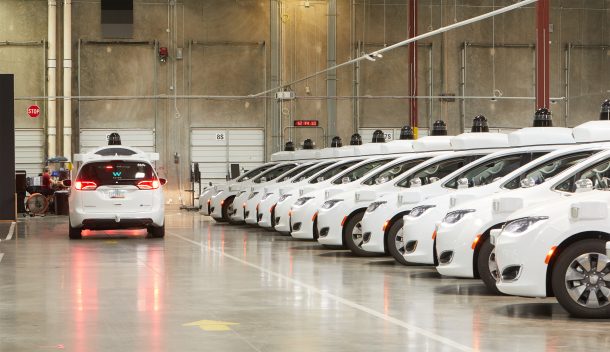

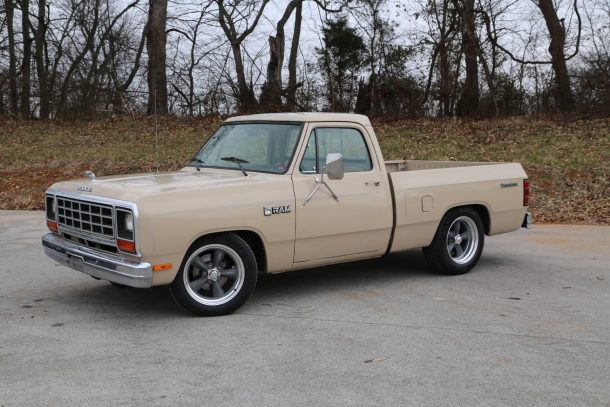
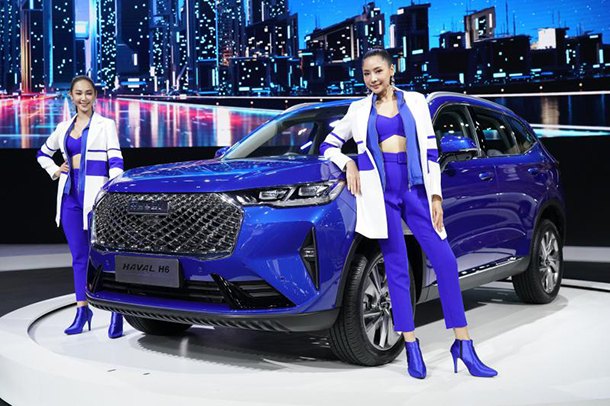
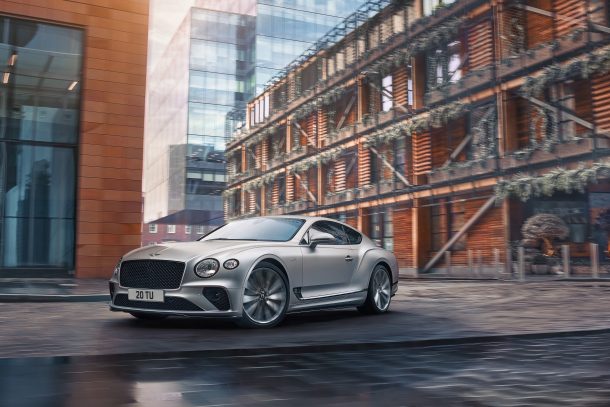

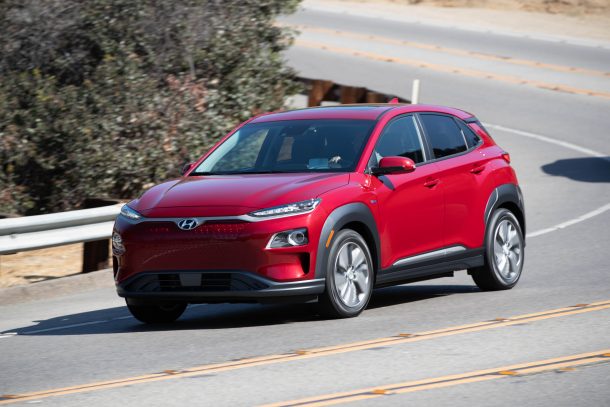
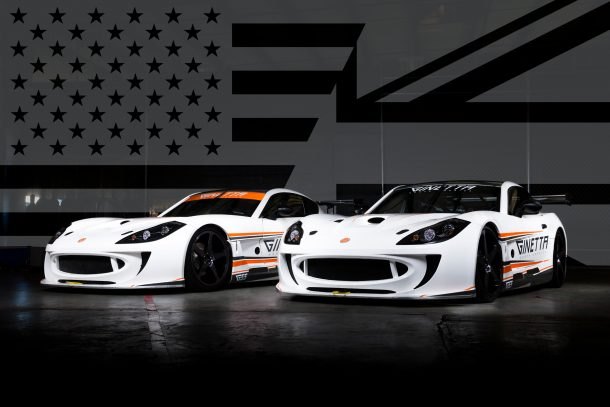
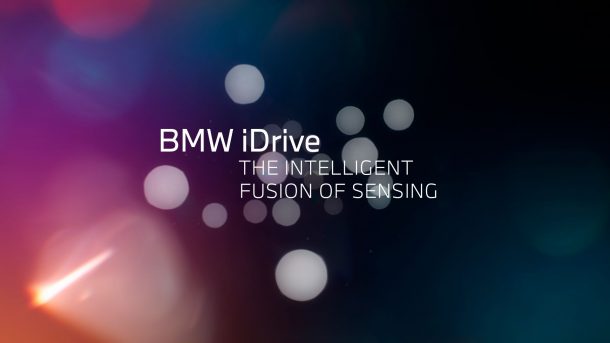
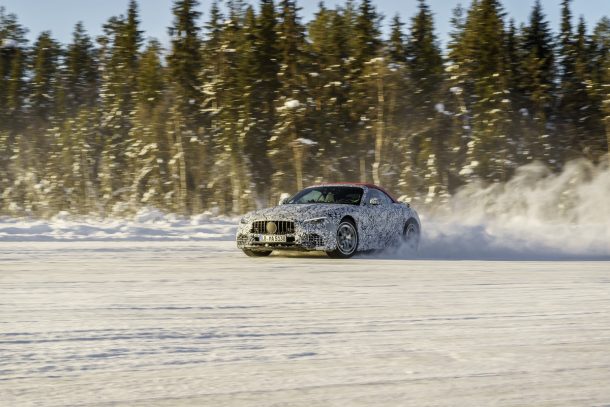
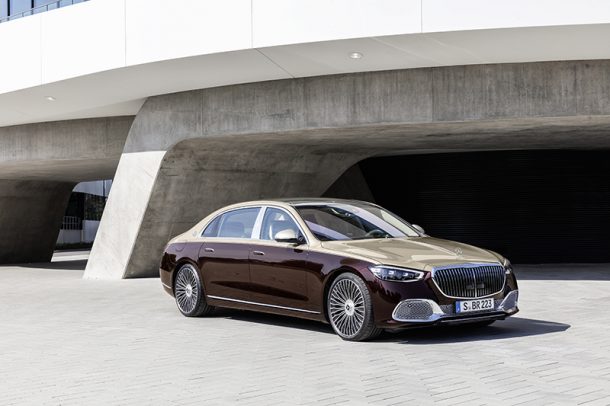
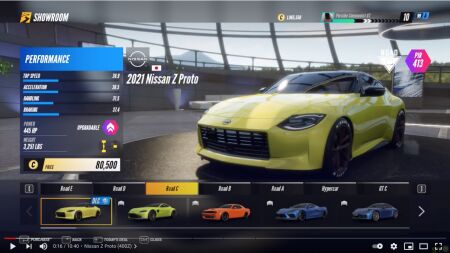
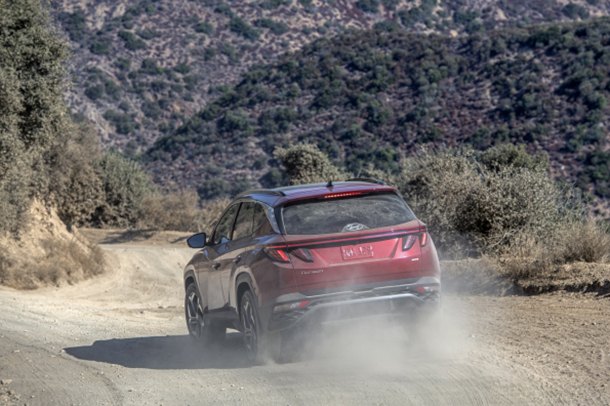
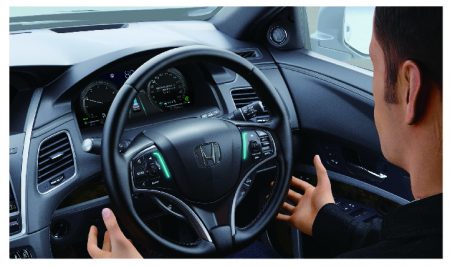
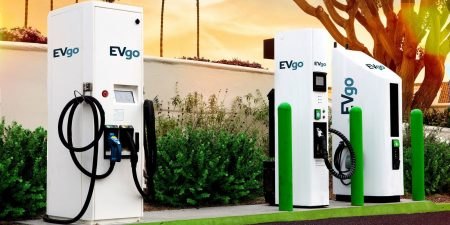
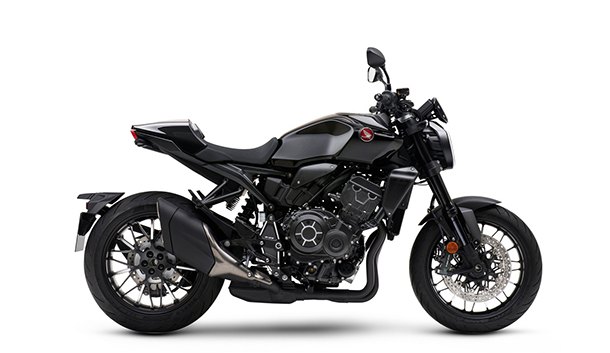
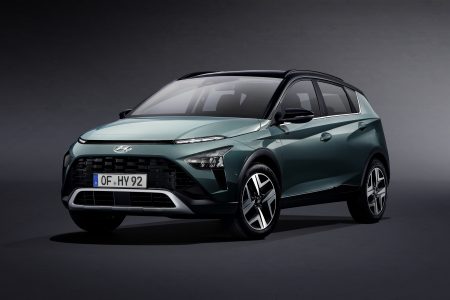















Recent Comments